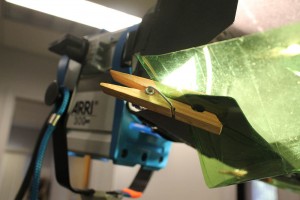On a sunny Los Angeles morning, 8,000 people marched in protest of president-elect Donald Trump. The course of the November 1st march was from McArthur Park, through the 3rd street tunnel, ending on the steps of a downtown federal building. The march was led by a collation diverse Los Angeles organizations including Union del Barrio, Black Lives Matter Pasadena, Black Lesbians United, the Freedom Socialist Party, and the Palestine Youth Movement. Along with regular members of the headlining organizations, the protest included many novice protestors who were compelled to march by for the first time.
As one can imagine, this massive group of people did not have one single message or platform. Rather they were a coalition of many interest and values, brought together by their shared disapproval of Donald Trump’s impending term. As a result, the chants heard at the march were varied. We’ll examine these chats in particular, and the behavior of people at protests generally as folklore.
Here are the chats I heard:
Rhythmic chants:
“The people united will never be divided”
(The peo-ple — / u-ni-ted — / will ne-ver be / di-vi-ded)“Hey hey! Ho ho! Donald Trump has got to go!”
(Hey hey — — / Ho ho — — / Don — -ald Trump / has got to go)“We reject the president elect”
(We — — re /ject — — the /pres-i-dent e-/lect — — –)“Love trumps hate!”
Call and response chants:
A: Not my president
B: Not my presidentA: Black lives matter
B: Black lives matterA: Sí se puede
B: Sí se puedeA: Say it loud, say it clear
B: Immigrants are welcome hereA: Say it loud, say it clear
B: Refugees are welcome hereA: My body my choice
B: Her body her choice
As a member of the crowd affiliated with no organization, my experience was that almost all of these chants were new to me. I learned them as I walked. The chants came sometimes from the people in front of me and sometimes from the people behind. Sometimes two chats would come at the same time or the same chant would be audible from two directions, out of synch with itself. The people in the middle were in the position to make a choice between the two chants.
The chants were brought to the protest, mainly, by leaders who had used them before, they are folklore because they are performed, learned from other people and they evolve over time. And in the march itself, you can expect the more popular chats to be repeated more often.
Since the march, I attempted to find the origin of some of these chants. Here are some of the most interesting finds.
“The people united will never be divided” is an adaptation of the 1973 Chilean song “¡El pueblo unido, jamás será vencido!” (The people united will never be defeated). Since its creation in 1973 as an anthem for the Popular Unity political alliance, the song has been adapted for dozens of other causes around the world. The chant at the LA protest still had the distinctive rhythm of the line “The people united will never be defeated,” although the chant is spoken, not melodious.
A: My body my choice
B: Her body her choice
The group who began this chant phrased it as it is above. It was designed to be a call and response in which women call out, “My body my choice” and men respond, “Her body her choice.” That chat is an affirmation of a woman’s right to her own method of birth control, including abortion.
However, several people in the crowd switched the response to, “Their body their choice.” The change from the singular “her” to the singular “their” removes gender from the chant, thereby acknowledging that not all people with a uterus identify as female, and that some transgender men and other people who are not “hers” have the same right to choose.
At the protest, most people continued saying “her body her choice” while others said, “their body their choice.” The change is subtle enough that a participant not familiar with the transgender rights movement might not notice or not understand the meaning of the alternative wording. To me, the original chant embodies the point of view of mainstream feminism or “white feminism” which focuses on sexism but pays little attention to the distinct forms of oppression faced by women of color, trans women, and others. While the second chant seeks to champion a more inclusive kind of feminism.
External links:
http://www.latimes.com/local/california/la-me-macarthur-park-trump-protest-20161112-story.html


